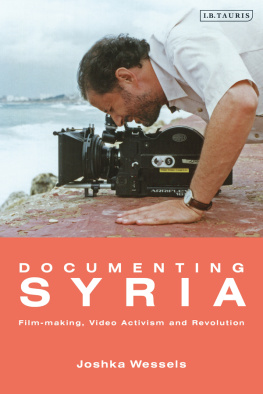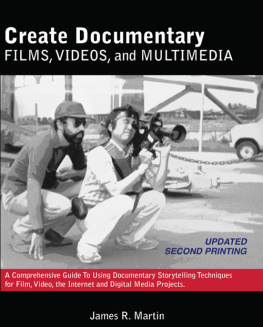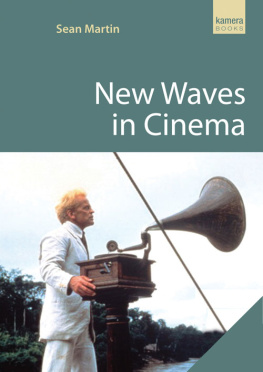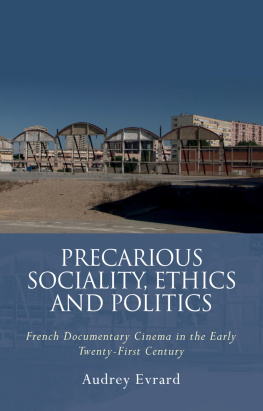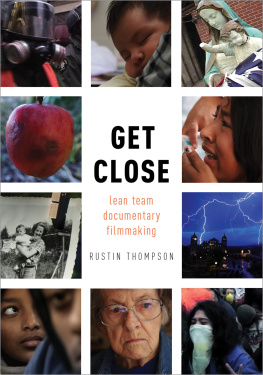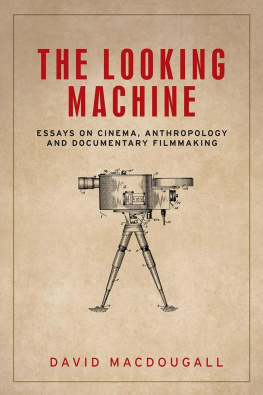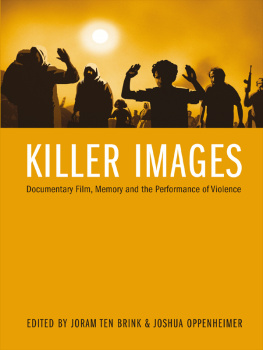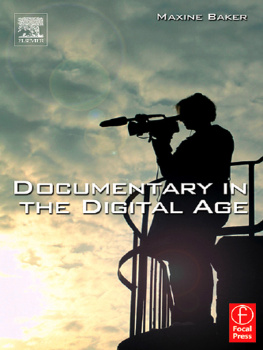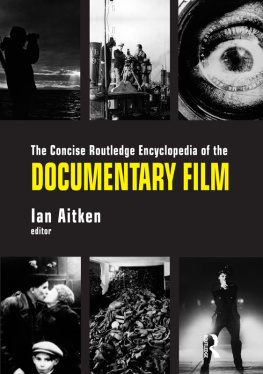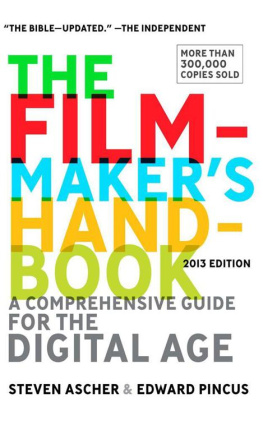
Documenting Syria
Documenting Syria
Film-making, Video Activism and Revolution
Joshka Wessels

I.B. TAURIS
Bloomsbury Publishing Plc
50 Bedford Square, London, WC1B 3DP, UK
1385 Broadway, New York, NY 10018, USA
BLOOMSBURY, I.B. TAURIS and the Diana logo are trademarks of Bloomsbury Publishing Plc
First published in Great Britain 2019
Copyright Joshka Wessels 2019
Joshka Wessels has asserted her right under the Copyright, Designs and Patents Act, 1988, to be identified as the Author of this work.
For legal purposes the constitute an extension of this copyright page.
Cover design: Adriana Brioso
Cover image Omar Amiralay during filming of On a Day of Ordinary Violence, My Friend Michel Seurat on location in Beirut, 1996
Abdel Kader Shourbaji
All rights reserved. No part of this publication may be reproduced or transmitted in any form or by any means, electronic or mechanical, including photocopying, recording, or any information storage or retrieval system, without prior permission in writing from the publishers.
Bloomsbury Publishing Plc does not have any control over, or responsibility for, any third-party websites referred to or in this book. All internet addresses given in this book were correct at the time of going to press. The author and publisher regret any inconvenience caused if addresses have changed or sites have ceased to exist, but can accept no responsibility for any such changes.
A catalogue record for this book is available from the British Library.
A catalog record for this book is available from the Library of Congress.
ISBN: HB: 978-1-7883-1173-1
PB: 978-1-8386-0434-9
eISBN: 978-1-7883-1616-3
ePDF: 978-1-7883-1617-0
Series: Library of Modern Middle East Studies
To find out more about our authors and books visit www.bloomsbury.com and sign up for our newsletters.
To Faisal,

(d. 2017)
We must involve ourselves in the struggle for our common salvation. There are no clean hands, no innocents, no spectators, we must all plunge our hands into the mud of our soil, every spectator is a coward or a traitor.
Every Day Life in a Syrian Village (1974) directed by Omar Amiralay (d. 2011)
La Syrie a besoin du documentaire: il faut laver les yeux du spectateur syrien qui na vu durant 40 ans que des films de propagande.
Hala al-Abdallah Yaqoub (2009)
Florence Ollivry, La situation du documentaire en Syrie: rencontre avec Hala Alabdalla, Babelmed (14 April 2009).
Contents
Figures
Map
This book is partly based on fieldwork carried out during postdoctoral research funded by the Danish Research Council within the framework of the study, The Role of New and Innovative Digital Media for Healing and Reconciliation in Post-conflict Syria (201416), based at the Centre for Resolution of International Conflicts (CRIC) at the University of Copenhagen, Denmark. There are many people I would like to thank who have been instrumental in this research and this book, from aiding and protecting me during my ethnographic fieldwork in Turkey and Syria in 2014, to commenting on earlier drafts and versions. First of all, I would like to thank Professor Jakob Skovgaard-Petersen and Professor Ole Waever for giving me the opportunity to spend two years as a postdoc at the University of Copenhagen, so I was able to interview and document the lives of Syrian video activists from Aleppo and Raqqa.
Since the outbreak of the Syrian Revolution, I had been communicating almost daily with my old friends back in Syria, where I lived between 1997 and 2002. Since the opening up of access to YouTube and Facebook inside Syria and the first upload of videos of demonstrations in 2011, I was glued to my computer screen to watch, follow and check daily videos from Syria. My postdoc project on video activism fitted perfectly with what I had already been doing since 2011. During my postdoctoral project, I conducted fieldwork in Gaziantep, Turkey and Aleppo countryside in 2014, interviewing Syrian video activists and documentary film-makers. It was during this time that the seed was planted to write a book.
My time in Turkey in 2014 was intense and memorable, and I went from one emotional rollercoaster to another. In Gaziantep, I met old friends, made new friends and realized Syria would never be the same again. I would like to thank my old friends, Haj Abdeen, Mustafa, Mamoun and many others who have helped me, who protected me during my fieldwork in 2014. I would like to thank my friend Zeina, who hosted me in Gaziantep, shared her stories and withstood the surprises and fear of me being off again to unknown places, not at least crossing the border into Syria, at one point. Together with Zeina and others, I had collected clothes during 2012 in Lund, Sweden, to send off to Syrian refugee camps inside Syria. In 2013, we collected around 400 kilos of clothes and fluffy toys during a two-day outreach event in Lund, which I helped to organize for the Center for Middle Eastern Studies (CMES) at Lund University. My further gratitude to Leif Stenberg, director of the CMES, himself a renowned Swedish Syria expert, for giving opportunities and support for Syria-related activities in Lund. During the major writing phase in 2016 and 2017, the CMES at that time was a haven of tranquility and scholarship.
The list of people to thank is very long. I would like to thank my old friend Joude for being such a great friend; it was so good to see each other again in the course of the writing of this book. Then all thanks to other old friends who helped me with this book, such as the wonderful Lina, Qais, Roula and others I know from my media training activities in Damascus; I also thank Heddy Honigmann for inspiring me with undying love of documentaries. Furthermore, I would like to thank Cecile Box, Ali al-Atassi and everyone at Bidayyat, Syndi and Aziz Hallaj and Sana and Jihad Yazigi for inviting me into their home in Beirut. Many other people in Copenhagen, Oslo, Berlin, Beirut, Amsterdam, Stockholm and Malm, contributed with conversations and constructive feedback on the idea of writing a book like this: Firas, Hamza, Ziad, Hanna, Sara, Sune, Donatella, Christa, Nabil, Christine, Ehad, Rebecca, Isabel, Miriyam, Enrico, Karim, Orwa, Alaa, Amer, Samer, Avo, Yassin and many others: you know who you are. Last but not least, all thanks to my family who supported me all the way in writing this book, providing the space, time and a summer writing retreat in the Netherlands, which ultimately gave the push to be able to finalize this monograph. My deepest gratitude to all of you!
Parts of appeared as Videooptagelser og den kollektive erindring (The role of video recordings in the collective memory of the Syrian Uprising) in Konflikten i Syrien: rsager, konsekvenser og handlemuligheder , edited by Bjrn Mller and Sren Schmidt (Denmark: Djf Forlags, 2015) as well as Video Activists from Aleppo and Raqqa as Modern-Day Kinoks, Middle East Journal of Culture and Communication , 10 (2017), pp. 15974.
Part of appeared as YouTube and Evidencing Warcrimes; the Role of Digital Video for Transitional Justice in Syria, Politik, 4/19 (2016), pp. 3052.
My love for both documentary film and Syria led me to write this book. I never expected Syria to become a big part of my life. I had conducted long-term fieldwork for my masters degree in visual anthropology in a refugee camp in Sudan in 1995 and my regional specialization was sub-Saharan Africa. But, since I spoke a bit of Arabic after my time in Sudan, I landed my first job as junior professional officer (JPO) in 1997 with the International Centre for Agricultural Research in Dry Areas (ICARDA) in Aleppo, Syria. I worked as an information and public awareness officer and, after my first two-year contract, I stayed on to conduct fieldwork and produce an ethnographic film about the rehabilitation of ancient water tunnels in Syria, which eventually ended up as the basis for my PhD dissertation in 2008.
Next page
